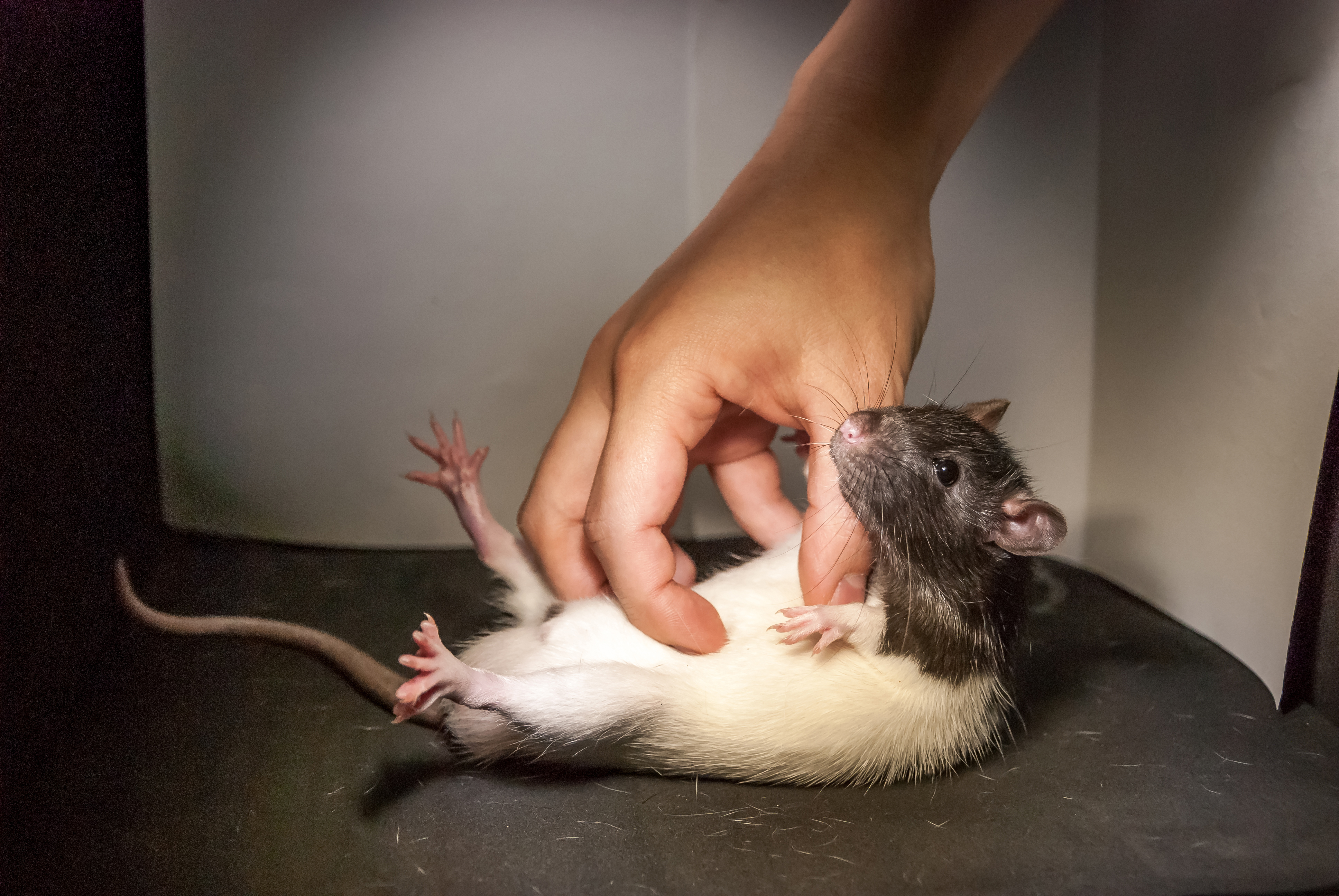 SCIENCE, SHIMPEI ISHIYAMA & MICHAEL BRECHTRats are ticklish, according to a study published in Science last week (November 11). As part of an attempt to pinpoint the brain regions responsible for uncontrollable laughter, over the course of three years, researchers tickled rats and monitored the rodents’ brain waves. They found that, as long as the rats were in the right frame of mind, they would squeak, jump, and lose control in response to being tickled. “It’s truly innovative and groundbreaking,” Jeffrey Burgdorf, a neuroscientist at Northwestern University in Evanston, Illinois, who was not involved in the study, told STAT News. “It takes the study of emotion to a new level.”
SCIENCE, SHIMPEI ISHIYAMA & MICHAEL BRECHTRats are ticklish, according to a study published in Science last week (November 11). As part of an attempt to pinpoint the brain regions responsible for uncontrollable laughter, over the course of three years, researchers tickled rats and monitored the rodents’ brain waves. They found that, as long as the rats were in the right frame of mind, they would squeak, jump, and lose control in response to being tickled. “It’s truly innovative and groundbreaking,” Jeffrey Burgdorf, a neuroscientist at Northwestern University in Evanston, Illinois, who was not involved in the study, told STAT News. “It takes the study of emotion to a new level.”
There are other ticklish animals out there—dogs and chimps, for instance—but rats are the easiest to handle in a laboratory setting. Neuroscientists Michael Brecht and Shimpei Ishiyama of the Bernstein Center for Computational Neuroscience Berlin implanted an array of electrodes into the somatosensory cortices of five rats. They then tickled the rats and recorded the rodents’ ultrasonic chirps, while noting that the neurons in each animal’s somatosensory cortex fired in concert with each chirping “laugh” pattern. When they later stimulated that brain region directly, the researchers found that could induce the same sort of “laughter” by manipulating the brain alone—implying that this region may be the key to ticklishness in rats.
But when they tried to tickle those same rats under more-trying conditions—on an elevated ...




















